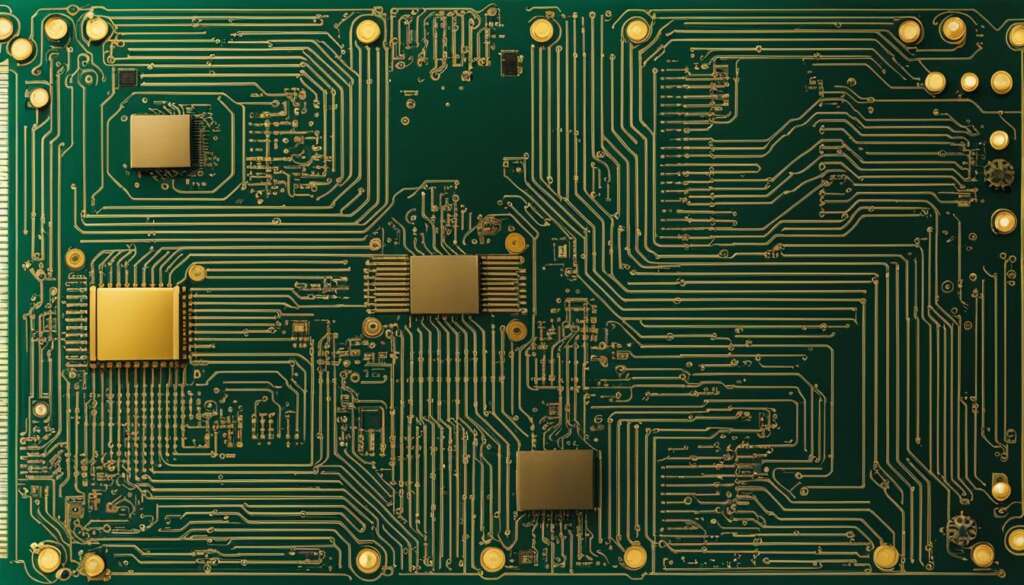Table of Contents
Computer science is a field that can often elicit strong emotions from individuals. Some may find themselves expressing a dislike or even hatred towards the subject. But what are the reasons behind this animosity towards computer science?
For some, the complexities of computer science can be overwhelming. Learning multiple programming languages and dealing with the intricate logic of coding can lead to frustration and a sense of being stuck. The immense workload, with long hours spent on projects and assignments, can further contribute to negative feelings towards the subject.
Additionally, some individuals may find that the subjects taught in computer science are not relevant to their future careers. This perceived irrelevance can lead to a lack of motivation and a questioning of the value of studying computer science.
Furthermore, the isolation that often comes with coding can be a factor in developing a dislike for computer science. Spending hours alone, focused intensely on code, can lead to feelings of loneliness and a lack of social interaction.
Overall, the challenges and frustrations associated with computer science, combined with the isolation and intense focus required, can contribute to a strong dislike for the subject. However, it is important to note that everyone’s experience with computer science is unique, and while some may dislike it, others may find fulfillment and enjoyment in the field.
In the following sections of this article, we will delve deeper into the specific challenges of computer science studies, the isolation and mental strain that can arise, the frustrations of bug finding and debugging, the complexities of coding, and ultimately conclude with a comprehensive understanding of why some individuals develop a strong dislike for computer science.
The Challenges of Computer Science Studies
Computer science studies present numerous challenges that can make the subject difficult and overwhelming for many students. From the rigorous curriculum to the complex programming languages, computer science studies require a high level of dedication and perseverance. Here are some key challenges that students often face:
Heavy Workload:
Computer science studies come with a heavy workload, requiring students to spend countless hours on projects and assignments. The amount of time and effort needed to complete these tasks can be daunting, leaving students feeling overwhelmed and stressed.
Perceived Irrelevance:
Some students may find certain subjects taught in computer science to be irrelevant to their future careers. This perceived irrelevance can lead to frustration and a lack of motivation, making it harder for students to engage with the material.
Isolation and Mental Strain:
Computer science often involves long hours of coding and debugging, which can be isolating and mentally taxing. Students may spend extended periods working alone, resulting in a lack of social interaction and potential feelings of loneliness.
The challenges of computer science studies can contribute to a dislike for the subject and make it difficult for students to thrive. However, it’s important to note that perseverance and finding support systems can help overcome these challenges and lead to a successful computer science career.
| Challenges | Impact |
|---|---|
| Heavy Workload | Overwhelming stress and time management difficulties |
| Perceived Irrelevance | Lack of motivation and disengagement |
| Isolation and Mental Strain | Feelings of loneliness and potential negative impact on mental well-being |
The Isolation and Mental Strain of Computer Science
One of the factors that can contribute to hating computer science is the sense of isolation that often accompanies it. Spending long hours coding and debugging can lead to a lack of social interaction, causing feelings of loneliness and isolation. This isolation, combined with the intense mental strain of computer science, can lead to anxiety and depression. It is important for students to find a balance and make time for activities outside of computer science to maintain their mental well-being.
In addition to the isolation, computer science can also take a toll on the mental health of students. The constant pressure to perform and meet deadlines can lead to high levels of stress and anxiety. The complex problem-solving required in computer science can be mentally exhausting, pushing students to their limits. The fear of failure and the need to constantly prove oneself in a highly competitive field can further contribute to mental strain. It is crucial for students to prioritize self-care and seek support when needed to cope with the challenges of computer science.
Furthermore, the demanding nature of computer science coursework can exacerbate feelings of isolation and mental strain. Many students find themselves spending long hours in front of a computer screen, working on coding projects or debugging code. This intense focus can lead to a lack of balance in life, with limited time for socializing or engaging in other activities. The pressure to constantly improve and stay up to date with the latest advancements in technology can also contribute to the mental strain experienced by computer science students.
| Effects of Isolation and Mental Strain in Computer Science | Consequences |
|---|---|
| Feelings of loneliness and social isolation | Increased risk of anxiety and depression |
| High levels of stress and pressure | Negative impact on mental health |
| Limited time for self-care and other activities | Imbalance in life and lack of fulfillment |
“Computer science can be a double-edged sword. While it offers endless opportunities and exciting challenges, the isolation and mental strain that come with it can take a toll on your well-being. It’s important to prioritize self-care, seek support when needed, and find a balance between your studies and personal life.”
It is crucial for educational institutions and computer science departments to address the issue of isolation and mental strain in the field. Implementing support systems such as counseling services and mentorship programs can provide students with the necessary tools to cope with the challenges they may face. Encouraging a healthy work-life balance and promoting social interactions among students can also help alleviate feelings of isolation. By acknowledging and addressing the mental health aspects of computer science, we can create a more nurturing and supportive environment for students pursuing this field.
The Frustrations of Bug Finding and Debugging
One of the significant challenges in computer science is the process of bug finding and debugging. It often involves spending hours, if not days, poring over lines of code to locate and fix errors. This meticulous and time-consuming task can be demoralizing for students, hindering their progress and dampening their enthusiasm.
The frustrations of bug finding and debugging are further exacerbated by the inability to walk away from a coding lab until the bug is resolved. This means that students may find themselves stuck, without any immediate solutions, which can be incredibly frustrating. The repetitive nature of the debugging process can also become monotonous and dull, draining the motivation and creativity of students.
“Debugging is like being the detective in a crime movie where you’re also the murderer.” – Filipe Fortes
Despite the challenges, it is essential to approach bug finding and debugging with patience and resilience. Documenting the steps taken during the process can help students track their progress and avoid repeating the same mistakes. Collaborating with peers or seeking guidance from professors can also provide fresh perspectives and potential solutions.
| Challenges of Bug Finding and Debugging in Computer Science | Solutions |
|---|---|
| Time-consuming and demoralizing | Patience and perseverance |
| Inability to walk away until the bug is fixed | Documenting steps and seeking guidance from peers/professors |
| Repetitive and monotonous | Finding creative ways to stay motivated |
By acknowledging the frustrations associated with bug finding and debugging and adopting effective strategies, students can navigate through these challenges and develop a greater appreciation for the problem-solving aspect of computer science.

The Complexities of Coding
Coding is an integral part of computer science studies, but it can also be a source of dislike for many students. The complexities involved in coding can make it feel monotonous and uninteresting. Some students perceive coding as a tedious and repetitive task that takes away from the more creative and problem-solving aspects of programming.
While coding is a necessary skill to develop, some students believe that it can be learned through practice rather than being forced to repeatedly complete coding assignments in class. They argue that spending excessive time on coding detracts from the broader understanding of computer science concepts and limits their exposure to other important areas of study.
The immersive nature of coding can sometimes lead to frustration and burnout, which further contributes to the dislike for computer science. It requires intense concentration and attention to detail, which can be mentally draining and overwhelming for some students. However, it’s worth noting that coding can also be a rewarding experience for those who enjoy problem-solving and the satisfaction of seeing their code come to life.
Despite the challenges associated with coding, it remains a fundamental skill in computer science. Emphasizing a well-rounded curriculum that incorporates practical applications, critical thinking, and creative problem-solving alongside coding can help address the complexities and frustrations that students may encounter. By providing a balanced approach, educators can foster a more positive learning experience and mitigate the dislike some students may feel towards computer science.
| Pros of Coding | Cons of Coding |
|---|---|
| Coding develops logical thinking skills | Coding can be monotonous and repetitive |
| Coding allows for creative problem-solving | Coding requires intense concentration and attention to detail |
| Coding is a valuable skill in many industries | Coding can be mentally draining and overwhelming |
Table: Pros and Cons of Coding
Conclusion
In conclusion, it is evident that there are various reasons why some individuals develop a strong dislike for computer science. The challenges and difficulties associated with learning programming languages, the workload, and the perceived irrelevance of certain subjects all contribute to negative feelings towards computer science. Many students find the isolation and mental strain of coding, as well as the frustrations of bug finding and debugging, to be overwhelming.
However, it is important to recognize that everyone’s experience with computer science is unique. Despite the challenges, there are individuals who find fulfillment and enjoyment in the field. While some may hate computer science, others may thrive and find it rewarding.
Ultimately, the decision to pursue computer science or not is a personal one. It is crucial to evaluate one’s interests, capabilities, and goals before making a judgment. While computer science may not be for everyone, it remains an integral and evolving field that plays a significant role in our increasingly digital world.
FAQ
Why do many people find computer science difficult and confusing?
The need to learn multiple programming languages can be overwhelming for students, leading to feelings of frustration and a lack of progress. The workload in computer science can be immense, with students often spending long hours on projects and assignments.
What subjects in computer science are often considered irrelevant to future careers?
Some students find many of the subjects taught in computer science to be irrelevant to their future careers, causing frustration and a lack of motivation.
How does the isolation and intense focus required in coding contribute to negative feelings towards computer science?
The isolation and intense focus required in coding can lead to negative feelings towards computer science. Spending long hours coding and debugging can lead to a lack of social interaction, causing feelings of loneliness and isolation. This, combined with the intense mental strain of computer science, can lead to anxiety and depression.
What are the frustrations of bug finding and debugging in computer science?
Spending hours and sometimes days trying to locate and fix bugs can be demoralizing and time-consuming. The repetitive nature of debugging can also be tedious and boring for many students.
Why can coding be a source of dislike for many students in computer science?
The complexities of coding, including its tedious and repetitive nature, can make it feel monotonous and uninteresting. Some students feel that coding takes away from the more creative and problem-solving aspects of programming.







